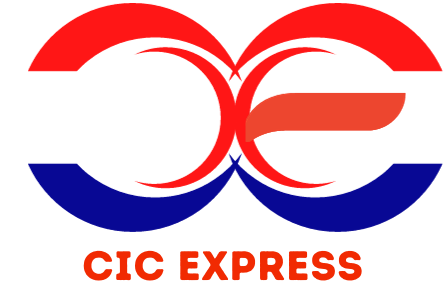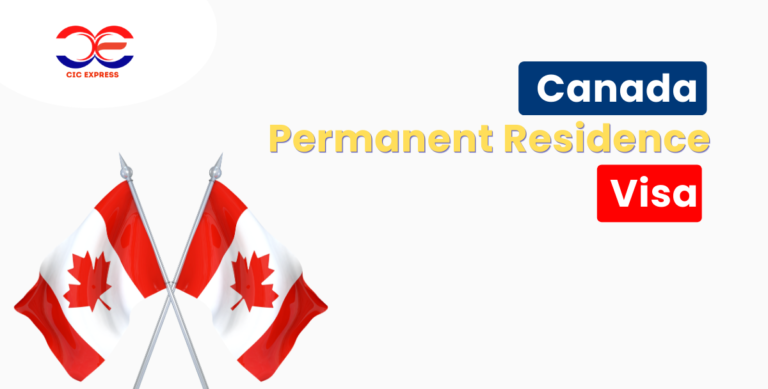Mastering the Process: How to Get a Job in Canada from India

Key Highlights
- Canada is a popular destination for Indian workers due to its high demand for skilled workforce.
- The Canadian government has open policies to support the job market by attracting foreign talent.
- Creating an ATS-friendly resume is crucial to increase your chances of getting shortlisted for a job in Canada.
- Researching the Canadian job market and applying through the right resources can enhance your job search.
- Obtaining a Canadian PR visa can boost your chances of getting employment in the country.
- Preparing for job interviews and understanding Canadian workplace culture are essential steps in the job application process.
Introduction
Canada has become one of the most sought-after destinations for Indians looking to work and live abroad. With its growing economy and high demand for skilled professionals, Canada offers numerous job opportunities for foreign nationals, including those from India. According to a survey conducted in 2021, around 44.5% of businesses in Canada found it challenging to find qualified candidates with the required skill set for various jobs.
The Canadian government has implemented open policies to support the job market and attract foreign-based talent to the country. As a result, the number of Indians who have become permanent residents of Canada has increased significantly over the years. In fact, between 2013 and 2022, the number of Indians who obtained permanent residency in Canada increased by 260%.
If you are an Indian worker wondering how to get a job in Canada, you’re in luck. The strong bilateral ties between India and Canada have created several job opportunities for Indian workers in Canada. In this ultimate guide, we will take you through the step-by-step process of how to get a job in Canada from India, along with valuable insights on the Canadian job market, professional networking, adapting to the Canadian workplace culture, and the legal requirements for working in Canada. We will also provide tips on how to update your CV to the Canadian resume format to increase your chances of getting hired.
Understanding the Canadian Job Market
Before diving into the process of getting a job in Canada, it is important to understand the Canadian job market and the opportunities it offers. The Canadian job market is known for its high demand for skilled workers in various industries, including transportation, food services, healthcare, technology, and educational services. In September of 2023, Canada’s job market experienced significant shifts, presenting numerous opportunities for those seeking employment. It is a diverse and competitive market that welcomes foreign nationals who possess the necessary qualifications and skills. With the right approach and preparation, you can find job opportunities that align with your expertise and career goals in Canada.
Key Industries and In-Demand Occupations
The Canadian job market offers job opportunities in various industries and occupations. Some of the key industries and in-demand occupations in Canada include:
- Skilled Workers: Canada has a high demand for skilled workers in fields such as engineering, information technology, healthcare, construction, manufacturing, and finance.
- Job Market: The Canadian job market is diverse and offers opportunities for professionals in both technical and non-technical roles.
- High Demand: There is a constant demand for professionals with specialized skills and experience in industries such as healthcare, technology, finance, and engineering.
- Foreign Nationals: Canada welcomes foreign nationals with the required qualifications and skills to fill the gaps in its labor market.
- Job Growth: Canada’s growing economy and expanding industries contribute to the continuous job growth and demand for skilled workers.
It is important to research the specific industries and occupations that align with your skills and qualifications to increase your chances of finding a job in Canada.
The Role of Professional Networking in Canada
Professional networking plays a crucial role in the job search process in Canada. Building connections and relationships with professionals in your industry can greatly enhance your chances of finding job opportunities. Networking events, industry conferences, and online platforms like LinkedIn can help you connect with potential employers and professionals who can provide valuable insights and referrals.
In Canada, networking is not just about finding job leads, but also about adapting to the Canadian workplace culture. Building professional relationships and establishing a strong network can open doors to hidden job opportunities that are not advertised publicly. It is important to be proactive, attend networking events, and reach out to professionals in your field to expand your network and increase your visibility in the job market.
Networking can also help you gain insights into the Canadian job market, industry trends, and specific job requirements. By connecting with professionals who are already working in Canada, you can learn about the hiring process, interview tips, and other valuable information that can give you a competitive edge in your job search.
Adapting to Canadian Workplace Culture
Adapting to the Canadian workplace culture is crucial for a successful job search and career in Canada. The Canadian workplace culture values professionalism, teamwork, communication, and respect for diversity. It is important to understand and align with these cultural values to thrive in the Canadian job market.
In Canada, workplace relationships are based on mutual respect and collaboration. It is important to be punctual, maintain a professional demeanor, and communicate effectively with colleagues and supervisors. Building strong relationships with your coworkers and superiors can contribute to a positive work environment and enhance your career growth opportunities.
Understanding the role of human resources (HR) in the Canadian job market is also essential. HR departments play a crucial role in hiring and managing employees in Canadian companies. It is important to familiarize yourself with the Canadian HR practices, employment laws, and regulations to ensure compliance and a smooth transition into the Canadian workplace.
Essential Steps Before Applying for Jobs in Canada
Before starting your job search in Canada, it is important to take certain essential steps to increase your chances of finding employment. The first step is to thoroughly understand the Canadian job market and the specific industries and occupations that align with your skills and qualifications. Researching the job market will help you identify the key players, in-demand skills, and job opportunities available in Canada.
Next, you need to evaluate your eligibility for working in Canada. This involves assessing your qualifications, work experience, and understanding the legal requirements for obtaining a work permit or permanent residency in Canada. Upgrading your skills to meet Canadian standards, preparing a Canadian-style resume and cover letter, and improving your language skills are also important steps to enhance your employability in Canada.
By taking these essential steps before applying for jobs in Canada, you can position yourself as a strong candidate and increase your chances of landing a job in your desired field.
Evaluating Your Eligibility for Working in Canada
Evaluating your eligibility for working in Canada is an important step before applying for jobs. The Canadian government has specific requirements and criteria for foreign nationals who wish to work in the country.
One of the main considerations is obtaining a work permit. A work permit is a legal document that allows foreign nationals to work in Canada for a specific period of time. To be eligible for a work permit, you must meet certain criteria, including having a valid job offer from a Canadian employer, demonstrating that you will leave Canada at the end of your authorized stay, and providing evidence of financial means to support yourself and any accompanying family members during your stay in Canada. Evaluating your eligibility for working in Canada is an important step in the process of obtaining a Canadian work permit.
In addition to a work permit, there may be other eligibility requirements based on your occupation, qualifications, and the specific immigration program you are applying under. It is important to consult the official Canadian government websites or seek professional advice to accurately assess your eligibility and understand the requirements for working in Canada. If you are unsure about your eligibility, you can also consult with a professional immigration consultant who can guide you through the Canada work permit process.
Upgrading Skills to Meet Canadian Standards
Upgrading your skills to meet Canadian standards can significantly enhance your employability in Canada. Canadian employers value candidates who possess specific skills and qualifications that are relevant to their industry.
Start by researching the specific skills and qualifications that are in high demand in your field in Canada. This could involve obtaining additional certifications, completing short-term courses, or gaining work experience in your home country that aligns with Canadian standards.
Language skills are also important for success in the Canadian job market. English and French are the official languages of Canada, and having strong language skills can give you a competitive advantage. Consider taking language proficiency tests like IELTS or CELPIP to demonstrate your proficiency to potential employers.
Additionally, acquiring Canadian work experience through internships, part-time jobs, or volunteering can showcase your adaptability to the Canadian work environment and give you an edge over other applicants. This can be a valuable asset when applying for jobs in Canada.
Preparing a Canadian-Style Resume and Cover Letter
Preparing a Canadian-style resume and cover letter is essential for a successful job application in Canada. The Canadian resume format is different from resumes in other countries and follows specific guidelines.
A Canadian-style resume typically includes the following sections: contact information, objective statement or summary of qualifications, work experience in reverse chronological order, education, skills, and additional information such as certifications or volunteer work. It is important to tailor your resume to highlight your relevant skills and qualifications that align with the job requirements and make you a suitable candidate for the position.
Similarly, a Canadian-style cover letter should be concise, well-structured, and tailored to the specific job application. It should highlight your key qualifications, explain your interest in the position, and showcase your motivation and enthusiasm for the job.
By preparing a professional and well-crafted resume and cover letter, you can make a positive impression on potential employers and increase your chances of getting shortlisted for job interviews in Canada.
Navigating the Job Application Process
Navigating the job application process in Canada requires understanding the hiring process and utilizing the right resources. The job application process can vary depending on the industry, employer, and job requirements.
Job portals play a crucial role in the job application process in Canada. These online platforms allow employers to advertise job vacancies and job seekers to search and apply for jobs. Some popular job portals in Canada include Indeed, Workopolis, Monster, and LinkedIn.
When applying for jobs, it is important to carefully read and follow the instructions provided by the employer. This may include submitting your resume and cover letter in a specific format, completing an online application form, or providing additional documents or references.
Understanding the job application process and utilizing job portals effectively can help you streamline your job search and increase your chances of finding employment in Canada.
Using Canadian Job Portals Effectively
Canadian job portals are an important resource for finding job opportunities in Canada. These online platforms allow job seekers to search and apply for jobs in their desired field and location.
One of the most widely used job portals in Canada is the Job Bank, which is the official job search website of the Canadian government. The Job Bank provides access to thousands of job postings across various industries and locations in Canada. It also offers resources and tools to help job seekers with their job search, including resume writing tips, interview preparation, and career planning advice.
In addition to the Job Bank, there are several other job portals and websites that cater to specific industries or regions in Canada. It is important to research and identify the job portals that are relevant to your field and location of interest.
When using Canadian job portals, make sure to create a profile, upload your resume, and set up job alerts to receive notifications about new job postings that match your qualifications. It is also recommended to regularly update your profile and resume to increase your visibility to potential employers.
Leveraging LinkedIn for Job Opportunities
LinkedIn is a valuable professional networking platform that can be a powerful tool for finding job opportunities in Canada. With over 722 million members worldwide, LinkedIn allows professionals to connect, build relationships, and showcase their skills and experience.
To leverage LinkedIn for job opportunities, it is important to create a professional profile that highlights your qualifications, work experience, and skills. Use keywords relevant to your desired job or industry to optimize your profile for search results.
Connect with professionals in your field, join industry-specific groups, and participate in discussions to expand your network and increase your visibility. Engage with content by liking, commenting, and sharing posts related to your field to demonstrate your expertise and interest.
LinkedIn also allows job seekers to search and apply for jobs directly on the platform. Many employers and recruiters use LinkedIn to post job vacancies and search for potential candidates. By actively using LinkedIn, you can tap into the hidden job market and discover job opportunities that are not advertised publicly.
Understanding the Importance of Job Interviews in Canada
Job interviews play a crucial role in the hiring process in Canada. They provide an opportunity for employers to assess your qualifications, skills, and fit for the job and for you to showcase your abilities and suitability for the role.
Preparing for job interviews in Canada involves understanding the job requirements, researching the company, and practicing common interview questions. Review the job description and tailor your responses to highlight your relevant experience and skills. Research the company’s values, mission, and culture to demonstrate your interest and fit with the organization.
During the interview, make sure to dress professionally, maintain eye contact, and engage with the interviewer. Prepare thoughtful questions to ask the interviewer to demonstrate your interest and curiosity about the role and the company.
It is also important to follow up with a thank-you note or email after the interview to express your gratitude and reiterate your interest in the position. This can leave a positive impression on potential employers and increase your chances of receiving a job offer.
Legal Requirements for Indians to Work in Canada
Working in Canada as an Indian citizen requires fulfilling certain legal requirements. The Canadian government has specific regulations and processes in place for foreign nationals who wish to work in the country.
One of the main legal requirements is obtaining a work permit. A work permit is a legal document that allows foreign nationals to work in Canada for a specific period of time. To obtain a work permit, you must have a valid job offer from a Canadian employer and meet certain eligibility criteria.
In addition to a work permit, there may be other legal requirements based on your occupation, qualifications, and the specific immigration program you are applying under. It is important to consult the official Canadian government websites or seek professional advice to accurately understand and fulfill the legal requirements for working in Canada, including obtaining a closed or open work permit for a specific location.
Comprehensive Guide to Work Permits and Visas
Obtaining a work permit or visa is a crucial step for Indian workers looking to work in Canada. The Canadian government offers various types of work permits and visas to cater to the needs of different individuals and occupations.
Here is a comprehensive guide to the types of work permits and visas available in Canada:
- Open Work Permit: An open work permit allows you to work for any employer in Canada. It is not job-specific and does not require a confirmed job offer. Spouses or common-law partners of certain categories of work permit holders, international students, and individuals under specific immigration programs may be eligible for an open work permit.
- Employer-Specific Work Permit: An employer-specific work permit allows you to work for a specific employer in Canada. You need a confirmed job offer from a Canadian employer to apply for this type of work permit.
- International Mobility Program (IMP) Work Permit: The International Mobility Program allows Canadian employers to hire foreign workers without the need for a Labour Market Impact Assessment (LMIA). The LMIA exemption is based on various factors such as reciprocal employment agreements, international agreements, and significant benefits to Canada.
- Temporary Resident Visa (TRV): A Temporary Resident Visa, also known as a visitor visa, is required for individuals from certain countries to enter Canada. It is important to check if you need a TRV in addition to a work permit.
| Type of Work Permit/Visa | Description |
| Open Work Permit | Allows you to work for any employer in Canada. |
| Employer-Specific Work Permit | Allows you to work for a specific employer in Canada. |
| International Mobility Program (IMP) Work Permit | Allows Canadian employers to hire foreign workers without an LMIA. |
| Temporary Resident Visa (TRV) | Required for individuals from certain countries to enter Canada. |
Understanding the different types of work permits and visas can help you determine the most suitable option for your situation and increase your chances of obtaining the necessary authorization to work in Canada.
Documents Checklist for Indian Applicants
Applying for a work permit or visa in Canada requires submitting certain documents to support your application. The specific documents required may vary depending on the type of work permit or visa you are applying for and your individual circumstances.
Here is a checklist of documents that Indian applicants typically need when applying for a work permit or visa in Canada:
- Valid Passport: A valid passport is required for travel to Canada. Make sure your passport is valid for the duration of your intended stay in Canada.
- Job Offer Letter: You will need a job offer letter from a Canadian employer to support your work permit application. The job offer letter should include details such as your job title, duties and responsibilities, salary, and the duration of employment.
- Educational Documents: Provide copies of your educational certificates and transcripts to demonstrate your qualifications and eligibility for the job.
- Language Proficiency Test Results: If required for the job or visa category, you may need to provide language proficiency test results such as IELTS or CELPIP scores to demonstrate your English or French language skills.
- LMIA or LMIA Exemption: Depending on the type of work permit, you may need a Labour Market Impact Assessment (LMIA) or proof of LMIA exemption to support your application.
- Proof of Funds: You may be required to provide proof of funds to support yourself and any accompanying family members during your stay in Canada.
- Medical Examination: In some cases, you may need to undergo a medical examination to ensure that you are in good health and do not pose a risk to public health and safety in Canada.
It is important to consult the official Canadian government websites or seek professional advice to determine the specific documents required for your work permit or visa application.
Recognizing and Avoiding Job Scams
When searching for a job in Canada, it is important to be aware of potential job scams and take steps to protect yourself from fraudulent activities. Job scams can take various forms, including fake job postings, recruitment agencies charging fees for job placements, and identity theft.
To avoid job scams, consider the following tips:
- Research the company and the job posting thoroughly. Look for red flags such as unrealistic job requirements, requests for personal or financial information, or job offers that seem too good to be true.
- Be cautious of job postings that ask for money upfront or promise guaranteed job placements without any verification process.
- Verify the legitimacy of the company and the job offer by contacting the employer directly through their official website or phone number. Do not rely solely on email communications.
- Protect your personal information by being cautious of sharing sensitive details such as your social security number or passport information.
- Trust your instincts. If something feels off or suspicious, it is better to err on the side of caution and avoid the job opportunity.
By being vigilant and conducting thorough research, you can protect yourself from job scams and ensure a safe and legitimate job search in Canada.
Strategies to Enhance Employability in Canada
Enhancing your employability in Canada requires a combination of strategies and efforts to stand out in the competitive job market. Here are some strategies to boost your employability:
- Gain relevant work experience by taking internships, part-time jobs, or volunteering opportunities in your field.
- Obtain additional certifications or qualifications that are in demand in the Canadian job market.
- Enhance your language skills, particularly in English or French, to meet the language requirements of potential employers.
- Network with professionals in your industry through industry events, online platforms, and professional associations.
- Stay updated with industry trends and advancements through continuous learning and professional development.
By adopting these strategies, you can increase your chances of finding employment in Canada and building a successful career in your desired field.
Importance of Canadian Work Experience
Canadian work experience is highly valued by employers in Canada and can greatly enhance your job prospects in the country. Having Canadian work experience demonstrates your familiarity with the Canadian job market, workplace culture, and industry-specific practices.
Canadian work experience is particularly important for newcomers to Canada who may face challenges in finding employment due to unfamiliarity with the local job market and limited Canadian references. By gaining Canadian work experience, you can showcase your adaptability, communication skills, and understanding of the Canadian business environment.
Canadian work experience also increases your chances of getting permanent residency in Canada. Many immigration programs, such as the Canadian Experience Class, prioritize candidates with Canadian work experience as it indicates their potential for successful integration into the Canadian society and labor market.
By obtaining Canadian work experience, you can significantly improve your employability, increase your chances of finding meaningful employment, and lay the foundation for a successful career in Canada.
Continuing Education and Certification in Canada
Continuing education and certification are important aspects of professional development in Canada. The Canadian job market values lifelong learning and the acquisition of new skills and knowledge.
Continuing education programs, such as diploma or certificate courses, can help you acquire new skills that are in demand in your field or enhance your existing skills. These programs are offered by colleges, universities, and other educational institutions across Canada. They provide opportunities for professionals to stay updated with industry trends, learn new technologies, and improve their job prospects.
Certification is another valuable credential that can enhance your employability in Canada. Many professions in Canada require specific certifications or licenses to practice legally. Obtaining the necessary certifications or licenses demonstrates your expertise, professionalism, and commitment to professional standards.
By investing in continuing education and obtaining relevant certifications, you can enhance your skill set, demonstrate your commitment to professional growth, and increase your competitiveness in the Canadian job market.
The Impact of Bilingualism on Job Opportunities
Bilingualism, or the ability to speak multiple languages, can have a significant impact on job opportunities in Canada. Canada is officially bilingual, with English and French as the two official languages.
Having strong language skills in both English and French can open doors to a wider range of job opportunities, particularly in certain provinces or industries where bilingualism is highly valued. Bilingual candidates are sought after in customer service, government, healthcare, education, and other sectors where interacting with diverse populations is essential.
Being bilingual can give you a competitive edge over other job applicants, as it demonstrates your ability to communicate effectively with a broader range of clients, customers, or colleagues. It also reflects your adaptability and cultural sensitivity.
If you are not bilingual, consider investing in language training programs or language courses to improve your language skills. Being able to communicate fluently in both English and French can significantly enhance your employability and increase your chances of finding job opportunities in Canada.
Pathways to Permanent Residency and Citizenship
Obtaining permanent residency and citizenship in Canada is a long-term goal for many individuals who wish to live and work in the country. Permanent residency status provides individuals with the right to live, work, and study in Canada on a permanent basis.
There are several pathways to obtain permanent residency in Canada, including:
- Express Entry System: The Express Entry system is a point-based immigration system that manages the applications for permanent residency under the Federal Skilled Worker Program, Federal Skilled Trades Program, and Canadian Experience Class.
- Provincial Nominee Programs (PNP): Each Canadian province and territory has its own PNP that allows them to nominate individuals for permanent residency based on their specific needs and labor market demands.
- Family Sponsorship: Canadian citizens and permanent residents can sponsor their close family members, such as spouses, common-law partners, parents, and dependent children, for permanent residency.
- Economic Immigration Programs: Canada offers various economic immigration programs, such as the Start-up Visa program, Business Investor program, and Self-employed program, which allow individuals with entrepreneurial skills or significant investment to obtain permanent residency.
Obtaining Canadian citizenship is a separate process that can be pursued after obtaining permanent residency. Canadian citizenship provides individuals with the rights and privileges of being a Canadian citizen, such as the right to vote and access to social benefits.
Express Entry System Explained
The Express Entry system is an online immigration application management system used by the Canadian government to manage applications for permanent residency under the Federal Skilled Worker Program, Federal Skilled Trades Program, and Canadian Experience Class.
The Express Entry system operates on a points-based system, where applicants are awarded points based on factors such as age, education, work experience, language proficiency, and adaptability. The highest-scoring applicants are invited to apply for permanent residency through regular draws conducted by the Canadian government.
To apply through the Express Entry system, individuals must create an online profile and provide accurate and up-to-date information about their qualifications and skills. Once the profile is submitted, it is entered into the pool of candidates, and applicants are ranked based on their Comprehensive Ranking System (CRS) score.
Applicants with a high CRS score are issued an Invitation to Apply (ITA) for permanent residency. Once the ITA is received, applicants have 60 days to submit a complete application for permanent residency, including supporting documents and fees.
Provincial Nominee Programs (PNP) for Job Seekers
Provincial Nominee Programs (PNP) are immigration programs that allow Canadian provinces and territories to nominate individuals for permanent residency based on their specific needs and labor market demands.
Each province and territory in Canada has its own PNP, with unique eligibility requirements and selection criteria. The PNPs are designed to attract and retain skilled workers, entrepreneurs, and other professionals who can contribute to the local economy and community.
The PNPs offer various streams or categories through which individuals can apply for nomination, such as the Skilled Worker stream, International Graduate stream, Entrepreneur stream, and Express Entry stream.
The eligibility requirements and selection criteria for each PNP stream may vary, but generally, applicants are assessed based on factors such as education, work experience, language proficiency, and adaptability to the specific province or territory.
By obtaining a provincial nomination, individuals can significantly enhance their chances of obtaining permanent residency in Canada. The PNPs provide an alternative pathway to permanent residency for individuals who may not meet the requirements of the Federal Skilled Worker Program or other federal immigration programs.
The Role of Canadian Job Offers in PR Applications
Obtaining a Canadian job offer plays a crucial role in the permanent residency (PR) application process. A valid job offer from a Canadian employer can significantly enhance your chances of obtaining PR status in Canada. The Canadian government values the contributions of skilled foreign workers to the Canadian economy and has implemented policies to attract and retain such talent, making it an important step in the process of obtaining permanent residence in Canada.
A valid job offer demonstrates to the Canadian government that you have the necessary skills and qualifications required to contribute to the Canadian labor market. It also shows your commitment to working and living in Canada, which is a key factor in the PR application process. Additionally, having a job offer can exempt you from the labor market impact assessment (LMIA), a process that assesses the impact of hiring a foreign worker on the Canadian job market.
Overall, a Canadian job offer not only opens doors to employment opportunities but also increases your chances of obtaining permanent residency in Canada, making it a valuable asset in your immigration journey.
Success Stories: Indians Who Made It in Canada
Indian professionals have achieved significant career growth and success in Canada, making them an inspiration for aspiring immigrants. From IT professionals to healthcare workers, Indians have made their mark in various industries in Canada. They have overcome challenges, gained valuable work experience, and adapted to the Canadian work culture to thrive in their careers. These success stories highlight the potential for Indian professionals to succeed in Canada and serve as motivation for others looking to pursue their dreams in the country.
Overcoming Challenges and Achieving Career Growth
Overcoming challenges is an essential part of achieving career growth in Canada. As an immigrant, you may face unique obstacles such as cultural differences, language barriers, and unfamiliarity with the Canadian job market. However, with perseverance and determination, you can overcome these challenges and achieve success.
Gaining work experience in Canada is crucial for career growth. It helps you adapt to the Canadian work culture, build professional networks, and enhance your skills. Starting with entry-level jobs or internships can be a stepping stone towards better opportunities. It is important to remain open to learning, take advantage of training programs, and continuously upgrade your skills to stay competitive in the job market.
Building a strong professional network is also essential for career growth. Networking events, industry associations, and online platforms such as LinkedIn can help you connect with professionals in your field and explore job opportunities.
By overcoming challenges, gaining work experience, and building a strong network, Indian professionals can achieve significant career growth in Canada.
Tips from Successful Indian Professionals in Canada
Successful Indian professionals in Canada offer valuable tips for navigating the Canadian job market and adapting to the Canadian work culture. Here are some tips to help you succeed:
- Research the Canadian job market: Understand the job trends, in-demand skills, and potential employers in your field. This will help you tailor your job search and applications accordingly.
- Network: Build professional networks through industry events, online platforms, and professional associations. Networking can lead to job opportunities and valuable connections in your field.
- Customize your resume: Tailor your resume to match the Canadian job market. Highlight your skills, experience, and achievements in a format that is easily scannable by applicant tracking systems (ATS).
- Develop soft skills: Canadian employers value soft skills such as communication, teamwork, and adaptability. Focus on developing and showcasing these skills in your job applications and interviews.
- Be adaptable: Embrace the Canadian work culture, which emphasizes collaboration, open communication, and work-life balance. Be open to learning and adapting to new work practices and expectations.
By following these tips, you can enhance your chances of success in the Canadian job market and thrive in your career in Canada.
Conclusion
In conclusion, navigating the job market in Canada from India requires a strategic approach encompassing understanding industry demands, networking, cultural adaptation, and legal requirements. By upgrading skills, preparing tailored applications, and utilizing online platforms like LinkedIn, you can enhance your employability. Remember, gaining Canadian work experience and investing in further education can significantly boost your prospects. Stay informed about pathways to permanent residency and citizenship, ensuring a smooth transition towards your career goals in Canada. Success stories of Indian professionals highlight that with perseverance and dedication, achieving career growth in the Canadian landscape is indeed possible.
Frequently Asked Questions
What Are the Best Ways to Find a Job in Canada from India?
The best ways to find a job in Canada from India include conducting a targeted job search, utilizing Canadian job portals, networking with professionals in your field, and leveraging the power of LinkedIn. These strategies can help you tap into the Canadian job market, connect with potential employers, and increase your chances of finding a job in Canada.
How Long Does It Take to Get a Work Visa After Getting a Job Offer?
The processing time for a work visa after receiving a job offer in Canada can vary. It depends on various factors such as the type of work visa, the workload of the Canadian government processing the application, and individual circumstances. In general, it can take several weeks to a few months to obtain a work visa in Canada.
Can I Apply for PR While Working in Canada on a Temporary Visa?
Yes, you can apply for permanent residency (PR) in Canada while working on a temporary visa. Having work experience in Canada can strengthen your PR application. It demonstrates your integration into the Canadian workforce and increases your eligibility for various immigration programs.
Is it difficult to get a job in Canada?
The job market in Canada can be competitive, especially in certain industries and locations. However, with the right skills, qualifications, and strategies, it is possible to find job opportunities in Canada. Skilled workers who meet the demands of the Canadian job market have good prospects for employment.
How can I get a job easily in Canada?
To increase your chances of getting a job in Canada, you can employ various strategies such as conducting a targeted job search, networking with professionals in your field, customizing your resume for the Canadian job market, and leveraging online platforms like LinkedIn. These strategies can help you find job opportunities and stand out to potential employers.
Why Permanent Residency is a Good Option to Get a Job in Canada in 2024?
Permanent residency (PR) in Canada is a good option to get a job in Canada in 2024 due to the job opportunities, stability, and benefits it offers. PR status allows you to work anywhere in Canada without the need for a work permit, making you an attractive candidate for employers. Additionally, PR status provides access to Canadian social benefits and paves the way for Canadian citizenship in the future.








